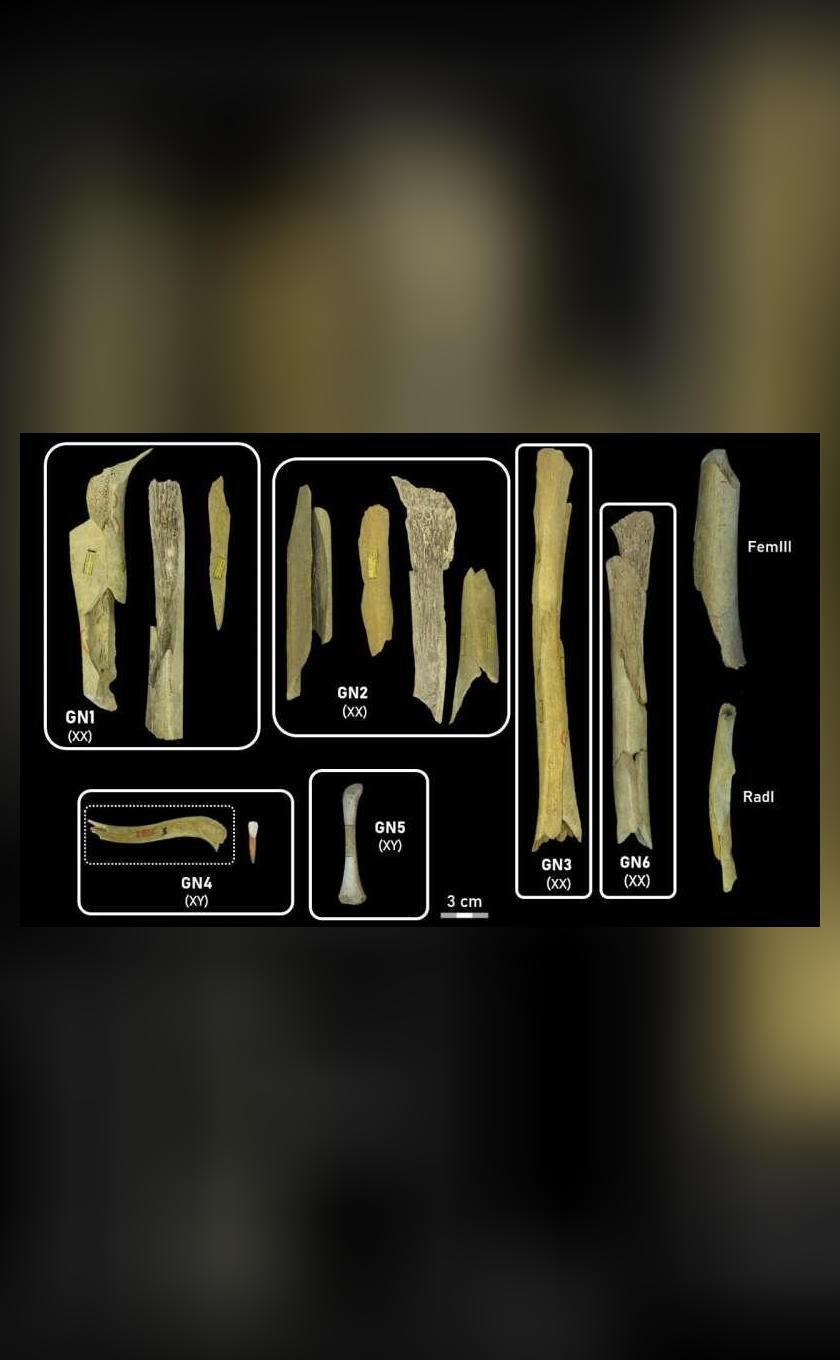
Neanderthals ate outsider women & children 45,000 years ago: Study
The discovery of ancient human remains in Belgium’s Goyet cave system has shed new light on the behavior of Neanderthals, our closest extinct relatives. A recent study of these remains has revealed a disturbing practice that was prevalent among Neanderthals around 45,000 years ago. According to the research, Neanderthals engaged in cannibalism, specifically targeting women and children from other communities. This shocking finding has significant implications for our understanding of Neanderthal behavior and the social dynamics of the time.
The study, which examined 101 bone fragments found in the Goyet cave system, identified butchery marks similar to those found on animal bones. This suggests that the Neanderthals treated these human remains in a similar way to their animal prey, using them as a source of food. The presence of these butchery marks on the bones of women and children is a clear indication that they were victims of cannibalism.
The researchers behind the study believe that this cannibalism was linked to territorial conflict, which was likely exacerbated by the shrinking Neanderthal population and the increasing presence of Homo sapiens in nearby regions. As Neanderthal numbers declined, they may have become more competitive and aggressive in their pursuit of resources, leading to conflicts with other Neanderthal groups. The fact that women and children were targeted suggests that these conflicts may have been particularly brutal and devastating.
The discovery of cannibalism among Neanderthals is not entirely new, as previous studies have found evidence of similar practices at other Neanderthal sites. However, this latest study provides some of the most compelling evidence to date, and highlights the complexity and nuance of Neanderthal behavior. It suggests that Neanderthals were capable of both cooperation and conflict, and that their social dynamics were likely influenced by a range of factors, including resource availability, climate change, and competition with other human groups.
The study also raises important questions about the nature of Neanderthal society and the way in which they interacted with other human groups. It is clear that Neanderthals were not a single, homogeneous entity, but rather a complex and dynamic population with their own social structures, cultural practices, and conflicts. The fact that they engaged in cannibalism, targeting women and children from other communities, suggests that their social boundaries were likely fluid and context-dependent.
Furthermore, the study highlights the importance of considering the broader social and ecological context in which Neanderthals lived. The presence of Homo sapiens in nearby regions, for example, may have played a significant role in shaping Neanderthal behavior and social dynamics. As Homo sapiens expanded their range and population size, they may have competed with Neanderthals for resources, leading to conflicts and territorial disputes.
The findings of this study have significant implications for our understanding of human evolution and the development of modern human society. They suggest that the origins of human social behavior are complex and multifaceted, and that our ancestors were capable of both cooperation and conflict. The study also highlights the importance of considering the ecological and social context in which human evolution occurred, and the ways in which different human groups interacted and influenced one another.
In conclusion, the discovery of cannibalism among Neanderthals is a significant finding that sheds new light on the behavior and social dynamics of our closest extinct relatives. The fact that women and children were targeted suggests that Neanderthal conflicts were often brutal and devastating, and that their social boundaries were likely fluid and context-dependent. As we continue to learn more about Neanderthal behavior and society, we are reminded of the complexity and nuance of human evolution, and the many factors that have shaped the development of modern human society.
News Source: https://phys.org/news/2025-11-neanderthal-women-children-victims-cannibalism.html





